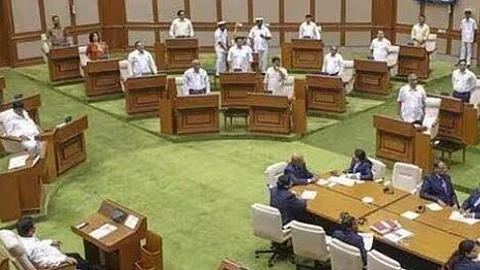

Starting August 1, the Goa government will roll out what could be one of the state’s most politically significant and socially sensitive exercises in recent memory. The legalisation of nearly one lakh houses built before 1972. Chief Minister Pramod Sawant has promised that homeowners who apply for land ownership and house legalisation through their local panchayat secretary for a modest fee of Rs 1,000, will receive clearance within seven days.
On the surface, this appears to be a corrective measure finally addressing a decades-old lapse in land and housing regulation. But beneath that veneer of efficiency and populism lie two glaring questions that cannot be ignored. First, if the 1971 survey listed roughly 1.5 lakh structures, how did more than two-thirds of them slip through the cracks into illegality? Second, in a state where land and property ownership disputes span decades and require judicial intervention, how realistic is the promise of a seven-day resolution window?
The roots of this crisis go back to colonial and post-colonial land systems. Many Goan families have lived in their ancestral homes for generations without holding formal ownership documents. While their names might appear in Form 14 or other village records, the absence of definitive ownership titles renders these homes ‘illegal’ in the eyes of the modern regulatory framework. During Portuguese rule, land registration was primarily a means of revenue generation, and not all families; especially those from economically weaker or marginalised communities, could afford to pay property taxes or undertake formalisation.
Those who could, temples, churches and elites did. The rest were left out, and successive governments, instead of recognising this systemic gap, chose to either ignore it or kick the can further down the road. Congress governments, the Rane administration, the Parrikar regime, all failed to confront the issue head-on. Instead, the problem was allowed to metastasize. Now, under growing judicial scrutiny and an alarming rise in illegal constructions, the government has been pushed into a corner.
Demolishing one lakh houses is not just impractical; it’s political suicide. The courts may order action against encroachments, but the idea of evicting lakhs of people;many of them poor, working-class families is unthinkable. The fallout would be catastrophic, both in terms of social unrest and electoral consequence. With assembly elections scheduled for 2027 and mounting public dissatisfaction over unemployment, and stalled economic recovery, the government clearly knows it cannot afford to alienate more voters.
That said, legalisation cannot become a backdoor to benefit only the influential. Already, many illegal houses in Goa are being used as hotels, rest houses, and Airbnbs, some worth crores. There are reports of affluent individuals from Delhi and Mumbai using shell buyers and forged documents to snap up prime real estate, converting forest and agricultural land into high-end tourist properties. These are not innocent homes of multi-generational Goan families; they are calculated violations for commercial gain.
This is where the danger lies. If the new legalisation policy ends up regularising such structures under the same umbrella as genuine, longstanding Goan homes, it will be a betrayal. The government must differentiate between legacy issues stemming from historical neglect, and recent opportunistic encroachments.
The challenge ahead is enormous. Thousands of applications are already pending. To dispose of them in seven days would require not only administrative will, but an overhaul in the bureaucratic culture of delay and favoritism.The Chief Minister must recognise that pushing policy is not enough; he must personally ensure its implementation remains transparent and inclusive. Government servants tasked with this process must be held accountable and stringent oversight is essential to prevent the well-connected from jumping the queue.
Goa’s land is not infinite. The ecological, economic and cultural pressures on the state are mounting. While the move to grant long-denied ownership to genuine residents is welcome, it must not be hijacked by those who view Goa merely as a weekend escape or an investment destination. If the government is indeed sincere in correcting a historical wrong, then it must draw clear lines: legacy over luxury, shelter over speculation.